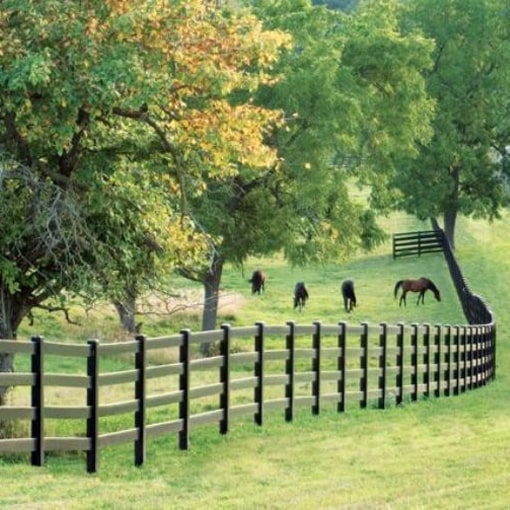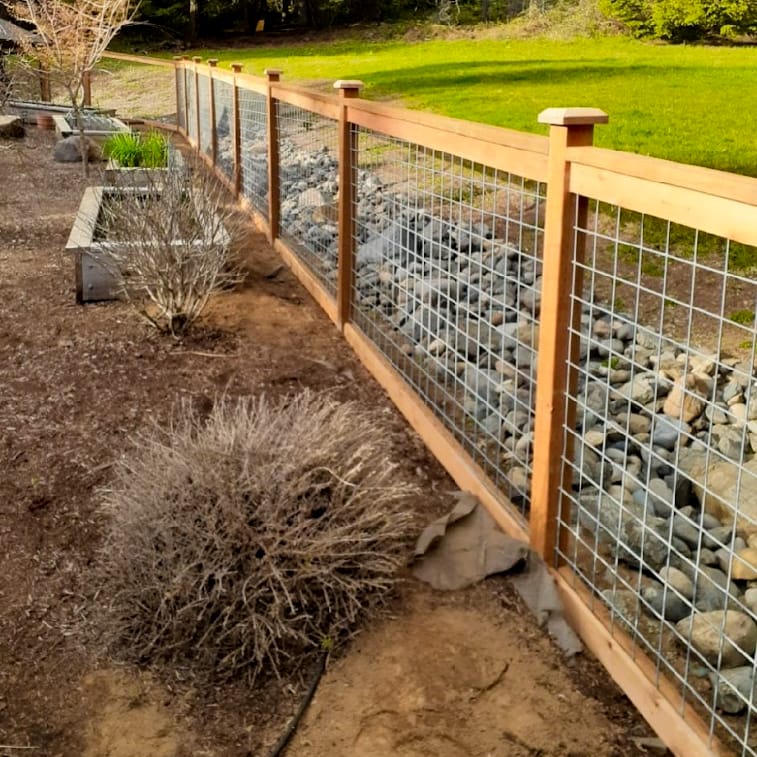All Categories
Featured

When setting up a fence, picking the appropriate material is crucial to balancing functionality, appearances, and budget. Timber, vinyl, and aluminum are among the most commonly chosen fencing materials, each with its downsides and toughness. This guide checks out the pros and cons of these alternatives to aid you make a notified choice.

Wood Fence. Pros:. All-natural Elegance: Timber's ageless beauty can enhance any type of building with its warm and traditional appearance. Customizable: You can repaint, tarnish, or carve timber to fit your design preferences. Affordable: Timber fencing is initially a lot more economical compared to some various other materials. Eco-friendly: As an eco-friendly resource, wood is naturally degradable and usually thought about green. Disadvantages:. Maintenance-Intensive: Routine securing, paint, or discoloration is called for to stop damage from weather and parasites. Prone to Decay: Without correct treatment, wood can rot, warp, or fracture over time. Shorter Life expectancy: On standard, wood fencings last 10-15 years, depending on the sort of timber and upkeep. Wood is a fantastic option for those who value aesthetics and want to buy routine maintenance to protect its look and resilience.
Plastic Fencing. Pros:. Low Upkeep: Vinyl calls for very little care-- just periodic cleaning with soap and water. Climate Resistant: It does not warp, rot, or catch insect damage, making it very durable in numerous environments. Longevity: Vinyl fencings can last 20-30 years with little to no repair services. Design Range: Available in a wide variety of structures, shades, and designs, including wood-like appearances. Disadvantages:. Higher Initial Expense: Vinyl fences are extra pricey upfront contrasted to wood. Vulnerability to Cold: In incredibly winter, vinyl can become susceptible and fragile to breaking. Restricted Repair Work Options: Matching substitute panels can be challenging if damages takes place. Vinyl fence is optimal for house owners seeking a long-lasting, low-maintenance solution that provides modern flexibility.

Aluminum Secure Fencing. Pros:. Rust-Proof: Aluminum withstands deterioration, making it a superb choice for damp or damp environments. Durable: In spite of being light-weight, aluminum is solid and can withstand extreme climate problems. Reduced Upkeep: It needs minimal maintenance, generally only occasional cleaning. Long Lifespan: Aluminum fences can last decades without significant degeneration. Elegant Design: Commonly used for ornamental purposes, light weight aluminum secure fencing adds a sleek, innovative look to residential or commercial properties. Disadvantages:. High Preliminary Investment: Light weight aluminum fencings are amongst the pricier alternatives on the marketplace. Much less Privacy: The open designs usual with aluminum fence do not offer much privacy. Susceptible to Damage: While sturdy, light weight aluminum can dent if hit with enough force. Light weight aluminum is an outstanding option for home owners prioritizing aesthetics and sturdiness without calling for much maintenance.
Making Your Choice. When determining in between plastic, aluminum, or timber fencing, consider your priorities:
Wood fits those who appreciate an all-natural appearance and do not mind placing in upkeep initiative. Vinyl is the best choice for those seeking a low-maintenance, weather-resistant remedy. Light weight aluminum provides streamlined style and durable durability but may do not have privacy. By very carefully examining these products' attributes, you can choose a fencing that matches your residential property while satisfying your visual and practical requirements.
Latest Posts
Host Your Following Occasion at FunCity Resort: A Location for each Party
Published Apr 22, 25
1 min read
Meet the Professionals Behind Montclare Auto Repair - Dedicated to Quality
Published Apr 21, 25
2 min read
Why Select Vinyl Fencing from Washington Fence
Published Apr 21, 25
1 min read
More
Latest Posts
Host Your Following Occasion at FunCity Resort: A Location for each Party
Published Apr 22, 25
1 min read
Meet the Professionals Behind Montclare Auto Repair - Dedicated to Quality
Published Apr 21, 25
2 min read
Why Select Vinyl Fencing from Washington Fence
Published Apr 21, 25
1 min read